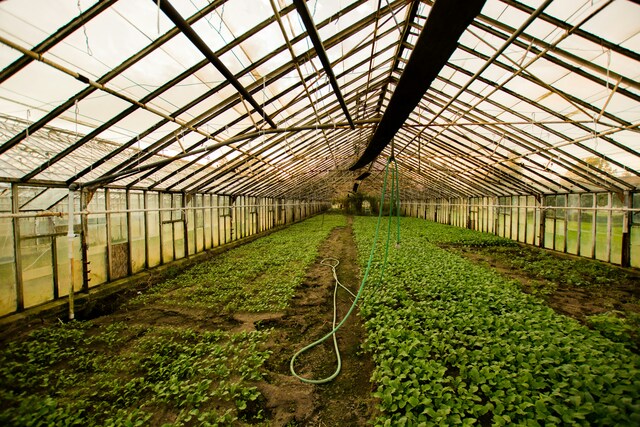Sleep
It appears that every man’s insomnia is as different from his neighbour’s as are their daytime hopes and aspirations by F. Scott Fitzgerald.
As the days shorten and the nights become longer and the chill of autumn creeps in, many are finding the gloomy autumn mornings hard to wake up and get out of bed to face the day.
The shorter days can disrupt the body’s circadian rhythm which regulates our sleep-wake cycles, and less sunlight can lead to an increase in melatonin production, the hormone that regulates sleep, making people feel sleepier.
And as the weather cools our bodies adjust to the lower temperatures by wanting to conserve energy and this can make us fatigued and lethargic but then when come bedtime we may find ourselves tossing, turning and wide awake.
We know that sleep plays a critical role in immune function, metabolism, memory, learning and other vital functions.
And that inadequate sleep can lead to a wide range of disorders, such as hypertension, obesity and type-2 diabetes, cardiovascular disease, impaired immune functioning, and more.
Sleep problems are extremely common.
At any given time around 10 per cent of people have at least mild insomnia.
Millions of adults ( and increasingly children)are currently suffering in silence with undiagnosed sleep disorders that are having a profound and escalating impact on health, the economy and society,
Media reports, self-help articles and wellness gurus tend to treat imperfect sleep as an individual problem, a failure that people need to fix by changing their habits and lifestyle.
We are told that healthy adults need at least seven hours of sleep per night.
Babies, young children, and teens need even more sleep to enable their growth and development.
But if we look back on previous generations waking in the midst of a long winter night is a form of sleep that would have been entirely normal before homes had electricity.
Nights were divided into a first and second sleep, with a “watch” in between, during which people would pray, reflect, make love or indulge in quiet conversation with family.
It was an intimate time, so private and mundane that it barely merited a mention.
There is also a cultural side to ‘sleep health,’ raising uncomfortable questions of equity and power. Seeing sleep purely as a personal responsibility fails to recognise it as a wider social issue and one of inequity.
For many it’s not about getting a comfortable supportive bed, the right warm blankets or doona, the soothing lights and candles and the right well balanced diet of whole grains, proteins and healthy fats.
Shift workers from truck drivers to medical workers have long lasting sleep problems.
Also those who in the present climate of rental and mortgage stress face possible eviction with nowhere to go and may find themselves couch surfing, sleeping in their car or on the streets.
If you’re sleeping rough without the comfort of a bed or blankets and are concerned about safety, it is unlikely you will sleep well, if at all.
Add to that the ever increasing noise and light pollution and overcrowding experienced by many. And speaking of safety and lack of essentials anyone in a war zone would certainly be sleep deprived.
Writer Dionne Brand’s poetry considers the difficulty of sleeping when disasters are affecting others.
In her book Thirsty, she writes:
if it is late at night and quiet…
you can hear someone’s life falling apart
Most people can sleep through a siren. I can’t…
Even at a great distance
you sense its mortal discoveries.”
The speaker in this poem lies awake because people in distant places are being killed by bombs and guns.
Sleep is central in early Western myths, Medieval and Renaissance fairy tales, and modern and contemporary fiction.
Poets, playwrights, and storytellers have spun yarns regarding characters who sleep, can’t sleep, cause others to not sleep, or suffer from sleep disorders.
These are explored in many of Shakespeare’s plays as in Macbeth where guilt-ridden Macbeth mourns the loss of innocent sleep:
Sleep that soothes away all our worries.
Sleep that puts each day to rest. Sleep that relieves the weary laborer and heals hurt minds.
Sleep, the main course in life’s feast, and the most nourishing.
Writers and artists have also delved into religious themes surrounding this universal human experience such as the parallel between sleep and death.
Emily Dickinson’s short poem seemingly about sleep is really about death: the long sleep.
A long — long Sleep — A famous — Sleep —
That makes no show for Morn —
By Stretch of Limb — or stir of Lid —
An independent One —
Was ever idleness like This?
Upon a Bank of Stone
To bask the Centuries away —
Nor once look up — for Noon?
It seems that how well we sleep depends on our circumstances.
There will be times when sleep will elude us, other times when sleep is impossible because of our circumstances There may of course be individual reasons why sleep becomes a problem and may need medical
help, but it is also undoubtedly important to recognize the social reasons: stress of all types, overwork, financial and personal relationship problems, inadequate housing, threat of homelessness, worry about the state of the world and more. And that is why sleep disorders cannot be isolated from the wider social context.
In Insomnia, Billy Collins (USA Poet Laureate 2001-2003) explores the restless and solitary experience of sleeplessness that all insomniacs feel.
You can sense the speaker’ frustration as he lies in bed, his mind full of thoughts and memories that are keeping him awake while the world outside seems to be in deep slumber.
Insomnia
By Billy Collins
Even though the house is deeply silent
and the room, with no moon,
is perfectly dark,
even though the body is a sack of exhaustion
inert on the bed,
someone inside me will not
get off his tricycle,
will not stop tracing the same tight circle
on the same green threadbare carpet.
It makes no difference whether I lie
staring at the ceiling
or pace the living-room floor,
he keeps on making his furious rounds,
little pedaler in his frenzy,
my own worst enemy, my oldest friend.
What is there to do but close my eyes
and watch him circling the night,
schoolboy in an ill-fitting jacket,
leaning forward, his cap on backwards,
wringing the handlebars,
maintaining a certain speed?
Does anything exist at this hour
in this nest of dark rooms
but the spectacle of him
and the hope that before dawn
I can lift out some curious detail
that will carry me off to sleep—
the watch that encircles his pale wrist,
the expandable band,
the tiny hands that keep pointing this way and that.







